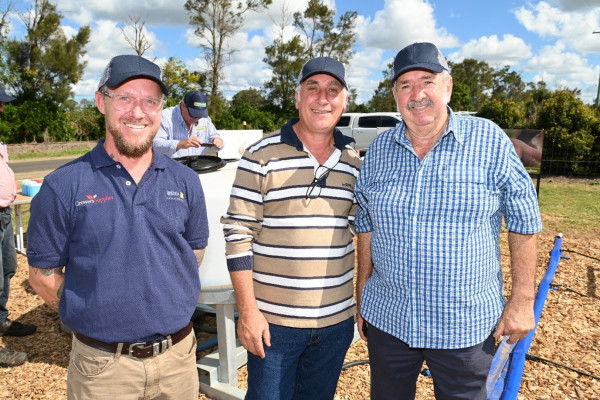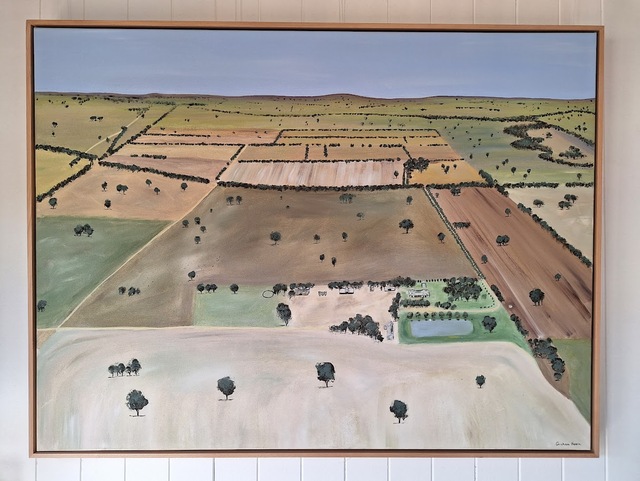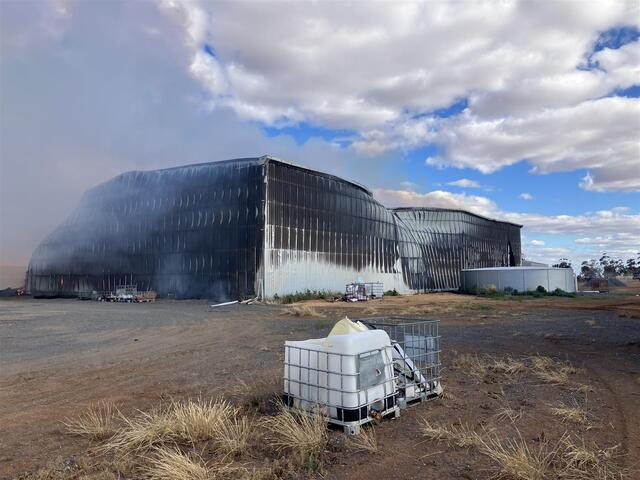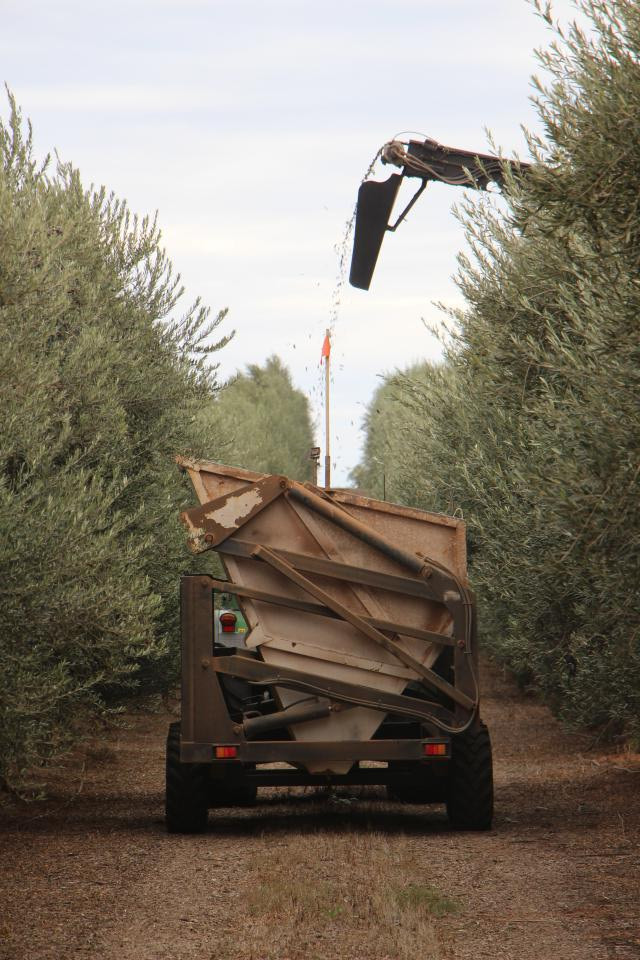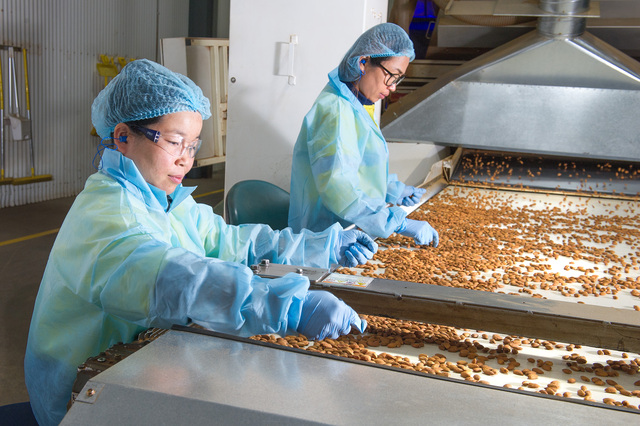Mildura’s Brenton Frahm has spent his life on the land, was a Nutrien agronomist for 15 years and runs a highly productive hectare, or so, at Buronga.He’s seen a lot as far as anything and everything agriculture goes.But at 74, he’s pretty sure he’s about to see some of the biggest changes in the business for the past 50 years, or so.
And reckons the change is not coming a minute too soon.
Brenton is not long back from a Syngenta GrowMore event in Bundaberg, Queensland, where he said presenters made it crystal clear the next big question confronting horticulture, his speciality, but also all agriculture, was the need to even better look after the soil.
He said his grandfather’s generation really looked after the land, putting back as well as taking out.
“But since then, we have squeezed the soil hard, to the extent that too much of it has lost the natural things it really needs – such as the worms and bacteria,” Mr Frahm said.
“We have to face facts, we are not going to get access to more farming country, we are going to have to make do with less, much less.”
“And farmers will still be expected to produce more and more from this shrinking space and that will require a very different approach.”
Atr GrowMore novel chemistry technologies were showcased to horticultural agronomists from across the country, taking them through various Syngenta crop protection solutions on a range of crops, including tomatoes, capsicums and melons.
For many it was an opportunity to have their first look at Syngenta’s new nematicide, which is currently under evaluation by the Australian Pesticides and Veterinary Medicines Authority (APVMA).
VANIVA nematicide will initially be registered for management of root-knot nematodes in cucurbit and fruiting vegetable crops, enabling growers to treat their soil as a single application via a drip or trickle irrigation system.
Syngenta technical services lead Dr Shaun Hood said VANIVA nematicide offered a clear alternative for the management of nematodes.
He said nematodes were a huge problem in many horticultural areas of Australia and often products such as soil fumigants were used to try to manage these pests.
“The challenge with soil fumigants is they are not targeted to just plant parasitic nematodes – they also take out a wide range of other living organisms,” Dr Hood said.
“Soil fumigants can have a detrimental effect on these organisms and Syngenta was keen to look at how VANIVA nematicide compares.”
Dr Neil Wilson, of Metagen Australia, addressed the GrowMore attendees on a trial project he conducted on how VANIVA interacts with the soil after application.
The project analysed the soil samples before application and at intervals in the weeks that followed.
He said findings showed there was a low impact on beneficial organisms as a result of the VANIVA treatment.
“This is in stark contrast to a soil fumigant application, which eliminates many of the beneficial organisms in the soil,” Dr Hood said.
“The targeted way VANIVA nematicide manages nematodes but leaves beneficial organisms in the soil is an extension of the integrated pest management (IPM) principles currently being used by growers in their crops above the ground.”
Mr Frahm said at GrowMore he and other agronomists were able to look at the efficacy of VANIVA nematicide to provide confidence in the lead-up to pending registration.
He said there were also other pipeline products viewed and discussed.
Syngenta has hosted GrowMore field days for several years to showcase and launch new products to the Australian horticultural industry.
“It was also attended by Syngenta personnel from research, sales, marketing and other divisions to signify the importance of their relationship with the industry,” Mr Frahm said.
“I know it sounds like I am banging the Syngenta drum but this company is very productive in what it is trying to achieve and one of the goals is for all farmers to be able to use fewer chemicals moving forward.
“We won’t ever be able to do the job without chemicals, organics simply won’t be able to feed the world, but smarter farming, better chemicals and better soil biology will.
“If we can help build resistance in the genes of plants, in vegies, vines, citrus, whatever, we can boost production an amazing 30-40 per cent by activating their biological goodness.”
Having trained in the “university of life” Mr Frahm said he did much of his postgraduate work “focusing on dirt under the fingernails”.
He said on his block he grew tomatoes for the local restaurant trade and roadside stall, along with capsicum, onions, rock-melons and brassicas – as well as cherry tomatoes.
Mr Frahm might have retired from Nutrien four years ago but during his working life and in the years since he has crisscrossed the globe checking out what’s happening elsewhere.
Trips which have taken him to the US, EU and South America as well as most primary horticultural areas in Australia – from Virginia in SA to the Ord in northern WA.
“Horticulture is intensive farming and traditionally has been based around rich, alluvial soils, especially on the coastal plains and most often around what became our big cities – but that peri-urban land, our most productive, has all but been swallowed by the urban sprawl and it’s never coming back,” Mr Frahm said.
“So biologics, rescuing our soil biology, will be critical. Look at the soils used for horticulture in the Sunraysia – just look around Mildura – it’s sandy, non-organic limestone-based soils and we already do so much with it and we will have to do more.
“I still have a dozen or so clients I work with, but if, for example, you look around at vineyards or orchards where the rows and the ground beneath vines and trees has been swept clean, you won’t find me on those blocks.
“How can the bacteria and worms survive in the heat, without cover, on nothing? My clients grow all sorts of things in rows and under canopies, from crops such as drip-irrigated cereals to fescues and similar and slash every second row on rotation – it not only cools the ground in summer it gives the good things shelter and somewhere to thrive.
“And that’s where we all need to go.”

